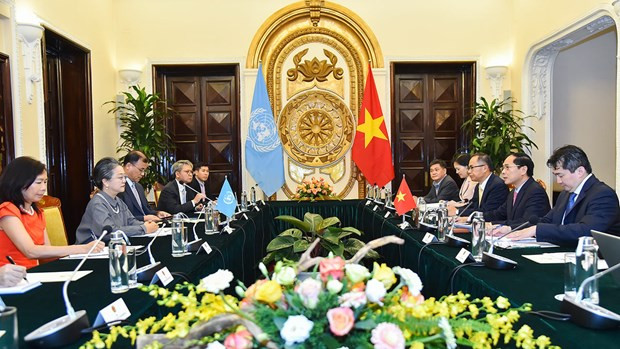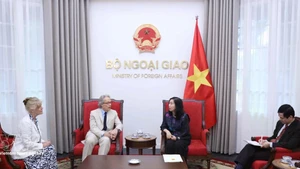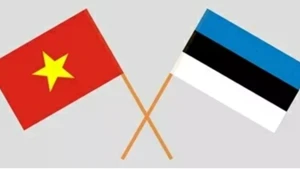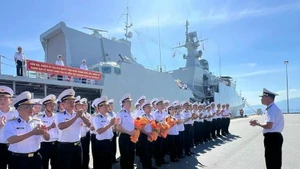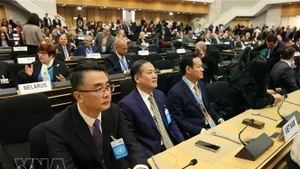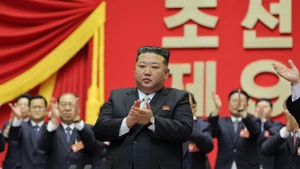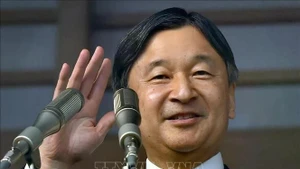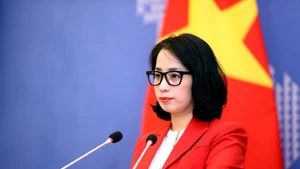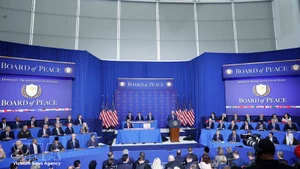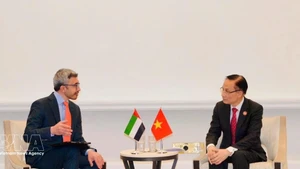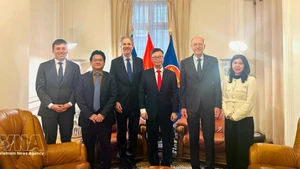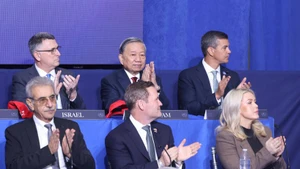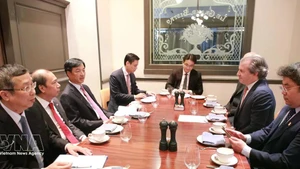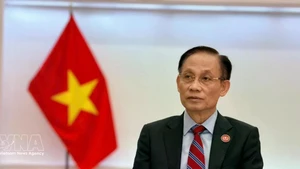During his talks with Under-Secretary-General of the UN and Executive Secretary of the ESCAP Armida Salsiah Alisjahbana in Hanoi, Son said Alisjahbana’s Vietnam visit from July 3-6 is of significance in the context that the world and the region are at the midpoint for implementation of the 2030 Agenda for Sustainable Development, and facing noted challenges, requiring stronger international cooperation.
Son briefed the UN official on Vietnam’s socio-economic situation and international integration, as well as major orientations for these fields.
The minister affirmed that Vietnam consistently pursues the foreign policy of independence, self-reliance, multilateralisation and diversification of relations, active and proactive international integration, and support for multilateralism and a world order based on international law and the UN Charter.
He used the occasion to thank the UN and its ESCAP for their companionship and support for Vietnam's socio-economic development and international integration over the past decades.
For her part, Alisjahbana expressed her good sentiments to Vietnam, and impressions on its socio-economic achievements.
She highly valued Vietnam’s increasing role and position in the region and the world, as well as the country’s active and effective contributions to the ESCAP, saying the commission wants to strengthen cooperation with the country in the coming time.
The two sides shared the view on positive developments of cooperation over the past time and discussed measures to further enhance the collaboration in the time ahead.
Son proposed the UN and the ESCAP in particular accompany and provide technical support for Vietnam in sustainable development and the implementation of the Sustainable Development Goals (SDGs).
Alisjahbana affirmed her readiness to engage in discussions with the Vietnamese side regarding the possibility of organising a national forum on SDGs in 2024 to accelerate the implementation of the goals.
They agreed to step up cooperation activities in such areas as climate change adaptation, the materialisation of the Just Energy Transition Partnerships (JETP), green energy transition in transportation, transport infrastructure development, statistical capacity strengthening, digital transformation, science-technology, and innovation.
The ESCAP is the most inclusive intergovernmental platform in the Asia-Pacific region. The commission promotes cooperation among its 53 member States and nine associate members in pursuit of solutions to sustainable development challenges. The ESCAP is one of the five regional commissions of the UN.
The ESCAP has maintained its relationship with Vietnam since national reunification, and provided technical support for the country in almost socio-economic sectors.
